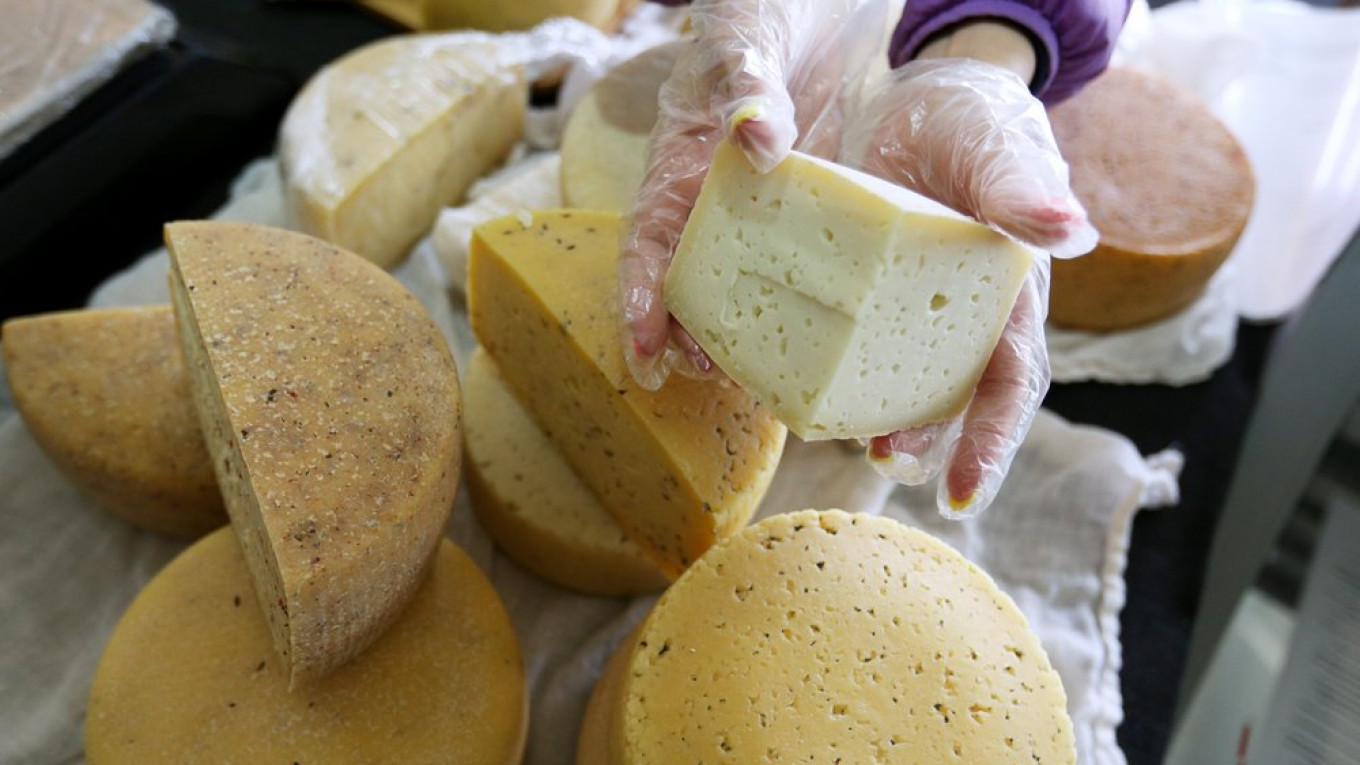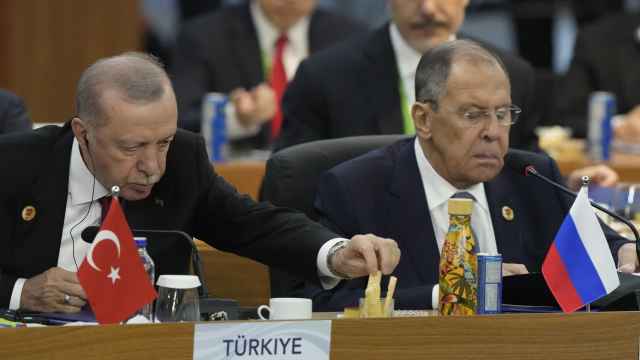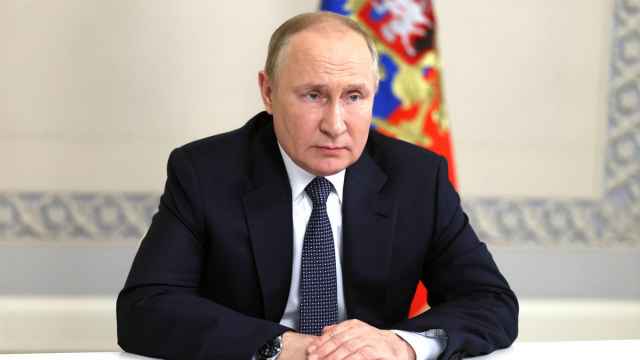Moscow’s high-profile drive to cut food imports — supported by Russia’s counter-sanctions on Europe — is not increasing the country’s agricultural production to the extent authorities had hoped, a new report has found.
Meanwhile, the food embargo — outlawing the import of European foodstuffs and introduced in response to Western sanctions against Russia for annexing Crimea — continues to distort trade and could be leading to mass re-exporting from countries as far away as South America, a new report by the National Rating Agency, cited by Kommersant, has found.
Russia’s imports of the products targeted under the scheme have fallen over the last seven years, analysts said, but the country’s domestic production has failed to increase as much as initially hoped, meaning the Kremlin is set to fall short of its 2020 targets for the program.
Dairy imports, for instance, are down 20% since 2013, against a 30% target. Moscow had hoped to cut vegetable imports by 70% — instead, they have declined by 27%.
Experts have long said the embargo on EU products has led to re-exporting — where a firm in a non-EU country buys goods from Europe, repackages them as produced in their country and sells them onto the Russian market. Belarus — which has a customs union with Russia — is seen as the prime example.
The new data shows that Minsk is increasing its share of Russia’s food imports. Belarus now accounts for 79% of all Russia’s dairy imports — up from 43% in 2013. It also accounts for almost a third of all meat imports, up from 12%.
But the analysts also found the re-exporting scheme could involve countries much further afield.
Before the embargo, Russia’s top trade partner for fish was Norway, which accounted for 40% of all imports. By 2019, Chile and the Faroe Islands had jumped into the top spots — from previously having sold virtually no fish to Russia. Since 2013, Chile has increased its own imports of Norweigian fish three-fold.
Similarly, Ecuador has become one of the top fruit sellers to Russia — making up 22% of all Russia’s imports. Over the same period, Ecuador increased its EU fruit imports seven-fold — with the country’s imports now standing above domestic consumption levels, Kommersant reported.
A similar distortion could be occurring with Moscow’s trade partners in the East, the data showed. China, for instance, now accounts for 21% of Russia’s vegetable imports, up from 8% before the food embargo was introduced. Over that time, Beijing has tripled its own vegetable imports from the EU.
Serbia, Moldova and Azerbaijan were among the other countries experts told Kommersant appeared to be involved in re-exporting to Russia.
Kremlin spokesperson Dmitry Peskov said Monday he considered the import substitution program “successful,” when asked about the report. Previous research found the initiative had cost Russian consumers $70 per person a year in higher food prices.
A Message from The Moscow Times:
Dear readers,
We are facing unprecedented challenges. Russia's Prosecutor General's Office has designated The Moscow Times as an "undesirable" organization, criminalizing our work and putting our staff at risk of prosecution. This follows our earlier unjust labeling as a "foreign agent."
These actions are direct attempts to silence independent journalism in Russia. The authorities claim our work "discredits the decisions of the Russian leadership." We see things differently: we strive to provide accurate, unbiased reporting on Russia.
We, the journalists of The Moscow Times, refuse to be silenced. But to continue our work, we need your help.
Your support, no matter how small, makes a world of difference. If you can, please support us monthly starting from just $2. It's quick to set up, and every contribution makes a significant impact.
By supporting The Moscow Times, you're defending open, independent journalism in the face of repression. Thank you for standing with us.
Remind me later.






